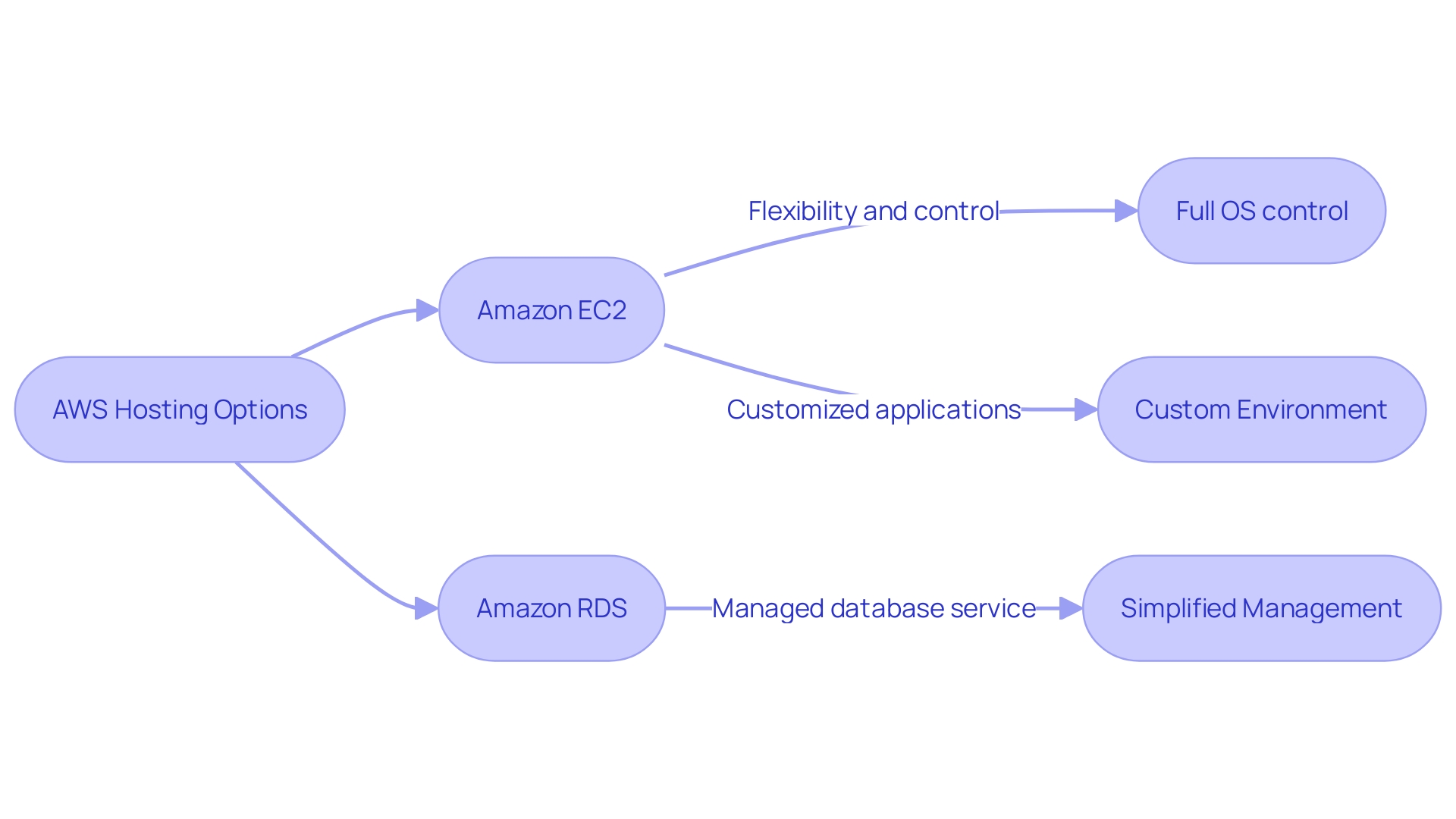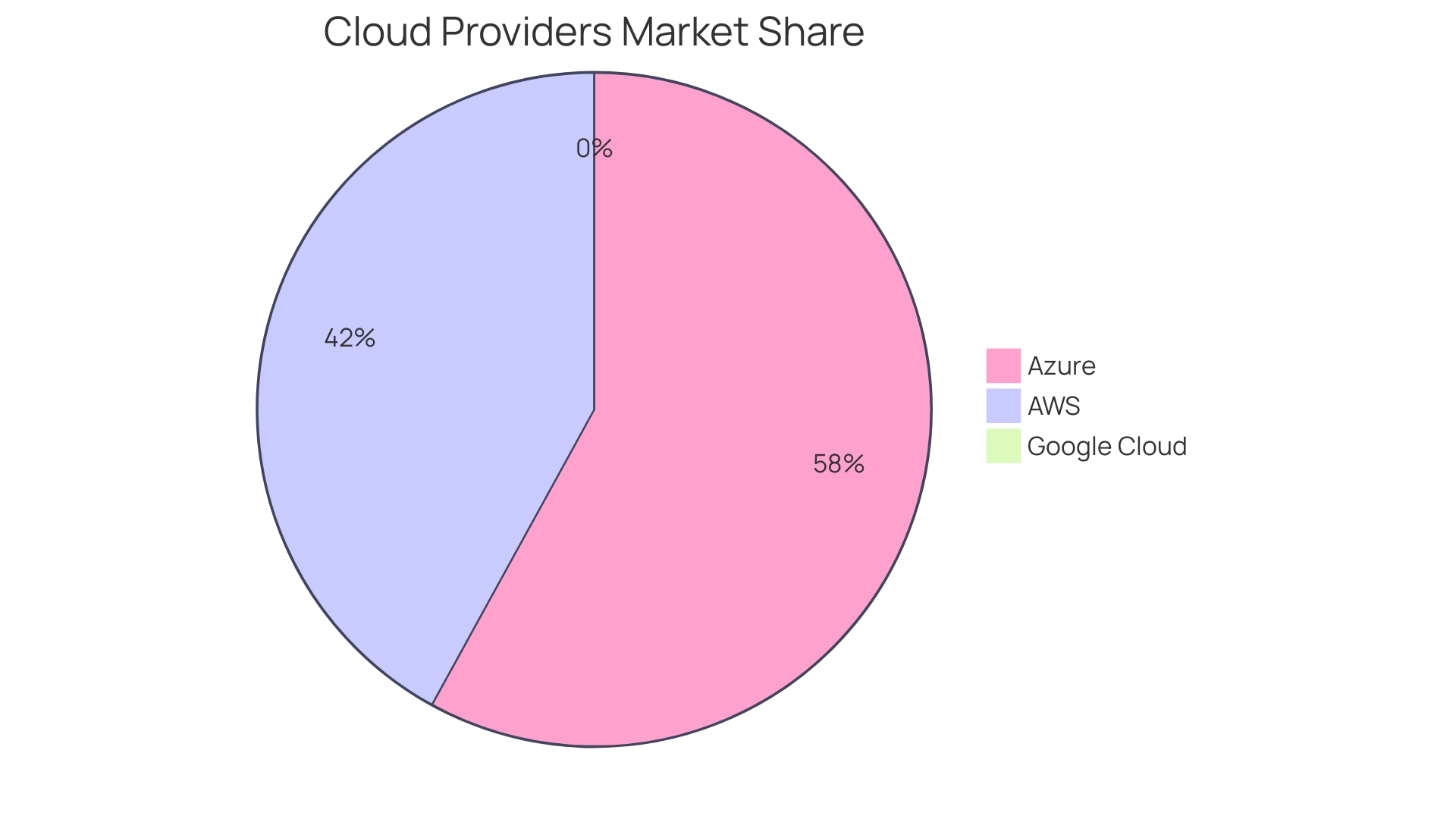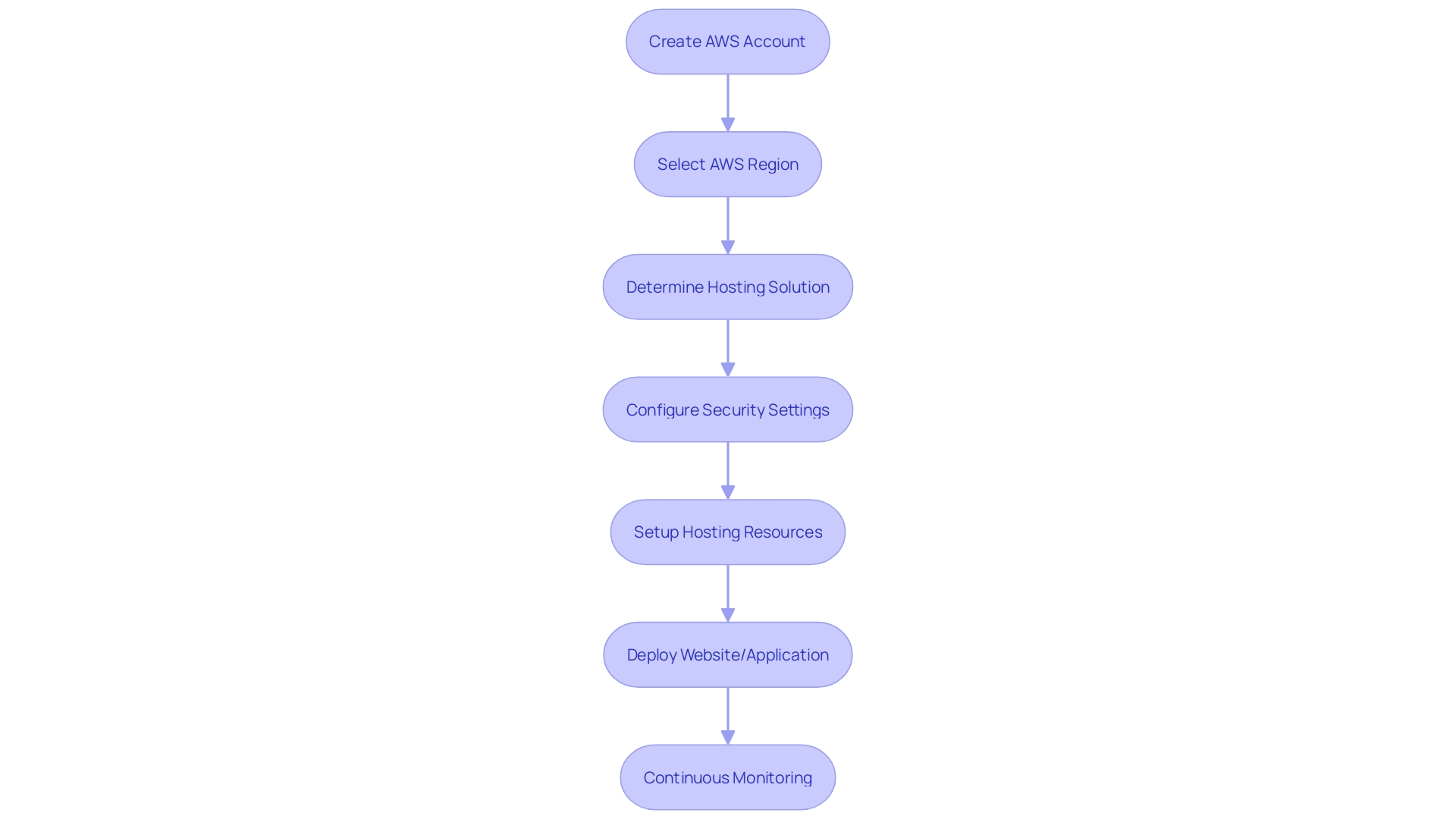Introduction
Amazon Web Services (AWS) stands out as a leading cloud platform, offering a comprehensive suite of hosting solutions that cater to a wide range of needs. With its scalability, reliability, global reach, cost efficiency, and robust security, AWS has established itself as a trusted authority in the field. This article explores the reasons why businesses should choose AWS for their hosting needs, the types of hosting options available, strategies for optimizing website performance, security and compliance measures, pricing and cost efficiency considerations, and how to get started with AWS web hosting.
Whether it's simple website hosting, dynamic web applications, enterprise-level solutions, or multi-master solutions, AWS provides the flexibility and expertise necessary to meet the demands of businesses across various industries. By leveraging AWS, organizations can enhance their online presence, streamline operations, and drive growth in an increasingly digital landscape.
Why Choose Amazon Web Services for Hosting?
Amazon Web Services (AWS) stands as a beacon in the cloud platform arena, providing a suite of hosting solutions that cater to a broad spectrum of needs. AWS's scalability is one of its most significant advantages. Organizations can seamlessly scale resources to match the ebb and flow of website traffic, ensuring smooth performance during peak demand.
The Dunelm Group, a leading homewares retailer in the UK, leverages AWS to support their website which commands over 400 million sessions annually, exemplifying AWS's capability to handle high volumes efficiently.
Reliability is another cornerstone of AWS, with its expansive network of data centers ensuring high availability. Vertex Pharmaceuticals' collaboration with AWS underscores this, where the cloud platform facilitates complex data analyses in drug discovery, a process requiring unwavering dependability.
AWS's global reach is unparalleled, allowing businesses to deploy applications across the world, thus optimizing content delivery and enhancing user experience. This global infrastructure is a crucial factor in AWS's market dominance and is particularly valuable for companies with an international customer base.
The pay-as-you-go pricing model of AWS reflects its cost efficiency, allowing organizations to avoid hefty upfront hardware investments and only pay for the resources they use. This model is particularly advantageous for startups and businesses looking to scale at their own pace, as it aligns with their budgetary constraints and growth trajectories.
Security on AWS is robust, offering features like DDoS protection and data encryption to protect against cyber threats. This comprehensive security framework is vital for organizations of all sizes, ensuring their applications and data are safeguarded in an increasingly hostile digital landscape.
With AWS, businesses gain access to a cloud platform celebrated for its affordability and flexibility, as evidenced by the wide range of industries it serves, from automotive to healthcare. Indiana's recent embrace of AWS as a partner in economic growth further highlights AWS's impact on various sectors and its role in shaping the future economy.
Statistics reflect the burgeoning web hosting industry, anticipated to reach $216 billion by 2025, with AWS driving forward as a leading force. The cloud platform's vast array of services, from networking (VPC) to security (IAM), combined with its extensive documentation, makes AWS an attractive proposition for businesses seeking a comprehensive, integrated cloud environment.
Types of Hosting on AWS
Amazon Web Services (AWS) offers a spectrum of hosting options that cater to different needs, from simple static website hosting to enterprise-level solutions with high availability and data replication across multiple regions. Simple Website Hosting leverages Amazon S3 for cost-effective storage of static files, making it ideal for sites without server-side processing requirements. Dynamic Web Applications benefit from AWS Amplify, which simplifies the build and deployment process for scalable applications.
Enterprise Web Hosting needs can be met with services like Amazon EC2 and AWS Elastic Beanstalk, offering customization and scalability. For Simplified Web Server Management, AWS Lightsail provides pre-configured virtual servers with an intuitive interface. Scalable and Customizable Solutions are available with Amazon EC2, giving users complete control over their virtual servers and the flexibility to adjust resources as needed.
Lastly, Multi-Master Solutions such as Amazon RDS and Amazon DynamoDB support high availability and ensure data replication in diverse locations.

Optimizing Website Performance on AWS
- Utilizing AWS CloudFront: By leveraging AWS CloudFront, businesses can enhance their website's user experience by delivering static content from data centers closer to their users, minimizing latency. For example, Dunelm Group plc, with their significant digital platform traffic, could see improved performance during their over 400 million annual website sessions.
- AWS Auto Scaling: Smart resource management through AWS Auto Scaling can help businesses like GoDaddy handle large volumes of traffic without compromising on performance, adapting resource allocation to real-time demand.
- Caching with Amazon ElastiCache: Implementing Amazon ElastiCache allows frequently accessed data to be stored in-memory, reducing the burden on backend servers and leading to quicker response times, a factor critical for companies with high online revenue streams.
- Database Performance with AWS Services: Services such as Amazon RDS and Amazon DynamoDB provide features like read replicas and automatic scaling, which are instrumental in optimizing database performance for seamless user experiences.
- Efficient Code Execution with AWS Lambda: Writing optimized code is essential, and with AWS Lambda, businesses can run code efficiently without managing servers, reducing server load and improving response times.
- Performance Monitoring with AWS CloudWatch and AWS X-Ray: Tools like AWS CloudWatch and AWS X-Ray offer insights into an application's performance, helping identify and address bottlenecks, crucial for maintaining the health of heavily trafficked sites like those of GoDaddy.
Security and Compliance in AWS Web Hosting
-
Network Security: AWS's commitment to network security is exemplified by its comprehensive features like VPC and network firewalls, which are essential in safeguarding infrastructure against unauthorized access and various threats. The culture of security embedded within AWS from the outset ensures that these features are not just add-ons but integral to their service offering.
-
Identity and Access Management (IAM): IAM is a pivotal component of AWS's security framework, enabling granular control over access and permissions. AWS's ownership model ensures that security is a collective responsibility, with every team fully accountable for the security of their services.
-
Encryption: With AWS's encryption solutions, including AWS KMS and AWS Certificate Manager, customers can secure their data both at rest and in transit. This not only protects sensitive information but also reinforces AWS's reputation for reliability and security.
-
Compliance: AWS's adherence to critical industry standards such as ISO 27001, SOC 2, and HIPAA, demonstrates its commitment to compliance and digital sovereignty, a factor highly regarded by organizations globally as they navigate digitization.
-
DDoS Protection: AWS Shield is an integral part of their DDoS mitigation strategy, ensuring that websites and applications are fortified against malicious traffic to maintain availability and service integrity.
-
Auditing and Logging: The ability to monitor and log API activity through AWS CloudTrail is not just a security measure; it's a reflection of AWS's broader security philosophy that emphasizes proactive risk management and continuous monitoring to maintain a secure cloud environment.
Pricing and Cost Efficiency of AWS Web Hosting
Amazon Web Services (AWS) offers a dynamic pay-as-you-go model for web hosting, which aligns costs directly with usage, avoiding the need for substantial upfront investments. This model is particularly beneficial for businesses seeking to manage their technology investments effectively and scale operations responsively.
Leveraging AWS Cost Explorer and Trusted Advisor can be instrumental in analyzing usage patterns and identifying cost-saving opportunities. These tools shed light on resource utilization, highlight idle resources, and suggest avenues for potential savings, thus assisting in the oversight of technical projects and driving cost efficiency.
For sustained workloads, AWS Reserved Instances can provide considerable cost reductions over on-demand instances, offering a strategic approach to managing technology investments. Similarly, AWS Spot Instances present an opportunity for running non-essential workloads at significantly lower costs, due to their pricing model that capitalizes on unused capacity.
Ongoing monitoring and right-sizing of resources ensure that instances are perfectly tailored to workload demands. This approach avoids both overprovisioning and underutilization, which is crucial for maintaining a balance between performance and expenditure.
Implementing cost allocation tags enables precise tracking and categorization of AWS spend. This granular visibility allows for the allocation of expenses to specific projects or departments, fostering accountability and refined cost management. It is a strategic move that resonates with the need for technology to drive organizational vision through informed decision-making.
As evidenced by GoDaddy's initiative to optimize batch processing jobs, which cater to over 20 million customers, a structured approach to cost optimization is critical. GoDaddy's 'seven layers of improvement opportunities' methodology underscores the potential for cost-saving strategies to significantly impact business efficiency.
In the context of AWS web hosting, it is vital to embrace a continuous process of refinement throughout a workload's lifecycle. By adopting a comprehensive approach to financial management, resource provisioning, data handling, and cost monitoring, businesses can achieve their desired outcomes while maximizing their return on investment.

Getting Started with AWS Web Hosting
To embark on utilizing Amazon Web Services (AWS) for web hosting, one must traverse through a series of methodical steps to establish a robust hosting environment. Initially, creating an AWS account is imperative, unlocking access to the AWS Management Console and the plethora of resources available. Subsequently, selecting an AWS region is crucial, with considerations like latency and data sovereignty influencing the choice for optimal website or application performance.
Determining the appropriate hosting solution is paramount, and AWS offers a spectrum of options catering to varied scalability, performance, and management needs. Security configurations are next in line, where one must establish rigorous safeguards by deploying IAM users, network security groups, and enabling encryption.
With the security framework in place, the focus shifts to configuring the necessary hosting resources. This could involve setting up Amazon EC2 instances, Amazon S3 buckets, or AWS Lambda functions, each tailored to meet specific application demands. Once the infrastructure is ready, the deployment phase commences, uploading website files or application code and ensuring full functionality through rigorous testing.
To maintain a seamless hosting experience, continuous monitoring with AWS tools is indispensable, providing insights for performance optimization and cost management. This diligent approach to AWS web hosting has been echoed in the tech industry, as seen with Instagram's rapid user growth, achieved by a small engineering team adhering to key principles and a dependable tech stack, and GoDaddy's structured methodology for efficiency enhancements.
Amazon's recent advancements, such as the launch of Amazon S3 Express One Zone for high-demand data access, and the progression of Graviton processors, underscore the platform's commitment to innovation and customer-centric development. AWS's serverless offerings like Lambda have redefined hosting paradigms, offering scalability and a secure runtime environment without OS-level access, ideal for interactive, content-rich client-side applications.
Ultimately, the objective is to illuminate the path towards a hosting solution that aligns with project-specific needs, ensuring robustness and resilience in the digital landscape. From virtual machines to serverless architectures, AWS's vast portfolio provides the tools necessary for businesses to thrive online, scale efficiently, and adapt to the dynamic requirements of the web.

Conclusion
In conclusion, Amazon Web Services (AWS) is a trusted and leading cloud platform that offers scalable, reliable, and secure hosting solutions. With its global reach and cost efficiency, AWS provides businesses with the flexibility and expertise needed to enhance their online presence and drive growth in the digital landscape.
AWS's scalability allows organizations to seamlessly scale resources to meet website traffic demands, ensuring smooth performance during peak periods. The reliability of AWS is exemplified by its expansive network of data centers, guaranteeing high availability for businesses. Additionally, AWS's global infrastructure enables applications to be deployed worldwide, optimizing content delivery and improving user experience.
The pay-as-you-go pricing model of AWS offers cost efficiency by eliminating the need for upfront hardware investments. Businesses only pay for the resources they use, making it an attractive option for startups and organizations with budget constraints. The robust security framework of AWS, including features like DDoS protection and data encryption, safeguards applications and data in the face of evolving cyber threats.
AWS offers a range of hosting options, from simple static website hosting to enterprise-level solutions with high availability and data replication. Businesses can optimize website performance through AWS services like CloudFront for content delivery, Auto Scaling for resource management, and ElastiCache for improved response times.
Security and compliance are paramount in AWS web hosting, with features like network security, IAM for access control, encryption for data protection, and compliance with industry standards. AWS also provides tools for monitoring and risk management, such as auditing and logging through CloudTrail.
AWS's pay-as-you-go pricing model enables businesses to effectively manage their technology investments. Tools like Cost Explorer and Trusted Advisor help analyze usage patterns, identify cost-saving opportunities, and optimize resource allocation.
To get started with AWS web hosting, businesses need to create an account, select a region, determine the appropriate hosting solution, configure security settings, set up resources, deploy the infrastructure, and continuously monitor performance and costs.
In summary, AWS empowers businesses with its reliability, scalability, global reach, cost efficiency, and robust security. By leveraging AWS, organizations can enhance their online presence, streamline operations, and drive growth in the digital landscape.




